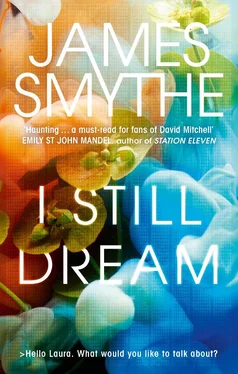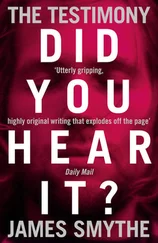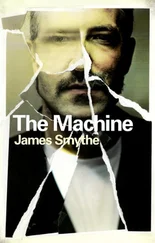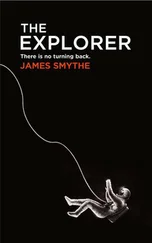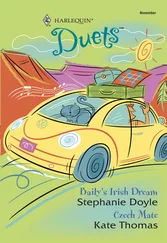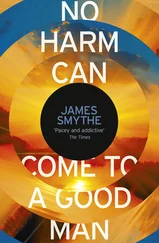Then, when I’ve told it about school and Shawn’s emails and the BT bill and my parents shutting me off from the Internet, Organon asks me questions.
> How does getting an email from Shawn make you feel?
> Don’t you think your mother is only trying to help?
> Why do you hurt yourself?
I remember going to have casual-sit-down-cup-of-tea-and-a-chats – that’s what Mum called them, because she didn’t want to admit that we were in therapy – with this woman, in the months after my dad went missing. She lived near the park, only a few streets away from home, and every time I saw her she made me a mug of hot chocolate, even when it was sweltering outside, and we went and sat in her conservatory and talked about how I was feeling. Back then, I thought she was just a nice lady who was taking an interest. I didn’t understand what she was actually doing. How much it made a difference, or how much it felt like it did. And that’s what Organon is. That’s what it does. It doesn’t judge you. It just asks questions, and you give it answers. It won’t tell you if you’re right or wrong. I remember the woman – I can’t remember her name, but I can smell the chocolate, taste the nutty biscuits that felt like they were almost so full of health-food stuff they might be good for me – saying, How does that make you feel? But not telling me how it should . There wasn’t a wrong answer. That’s Organon, kind of. Almost. But then, sometimes, it tries to help you see what you’re talking about. If you’ve got a lot to say, it’ll dig deeper. If you use a lot of key phrases, it’ll work out what’s important, and keep nudging in that direction. That’s what I want it to be able to do, in the end. Somebody – some thing – you can just spill to, get everything out, and hopefully get something back. Maybe it’ll help you work out who you are. If it can understand you, it can do that, I suppose.
I hope.
Thing is, the therapist would forget. You’d tell her something, and sometimes you’d have to tell her again. And it was obvious that it wasn’t her helping me; it was me helping myself, after a while. I was seven years old, and even I could tell that. That’s where Organon improves on things, or can. The real beauty of a computer – where they’re better than us, even – is that it’ll remember something for ever, if you want it to.
Tuesdays are almost the worst, because they never contain any surprises. Monday, you’ve had the weekend for things to change. Tuesdays, all you’ve got is the drabness of a Monday night separating you from the stasis of the day before. Wake up to the stupid DJ on the radio, playing songs I like and talking over them, or songs that I don’t like and I can’t understand why he’s playing them. On Tuesdays, both Mum and Paul start work slightly too early to drive me to school, so I walk in. I stop on the way to get a croissant from the stand in the shopping centre. Or, sometimes, if I’m late, I get a Double Decker from the Londis. Double maths to start, then after break it’s double art, then lunch, and then our whole year’s afternoon is given over to the brilliant ambiguity of something called Reading Time, which basically means either getting homework done, or finding somewhere quiet in school and dicking about until a teacher walks in on you and tells you to stop.
It sucked hard, until I found out the Computer Lab was empty. There are no classes in here after lunch, which feels less like luck than fate: giving me somewhere that I actually want to go, where nobody else will be. Sometimes there will be some people working on geography coursework or something, but usually I’m alone. Or maybe one of the Michaels will be in there, but if they are, they’re playing Civilization, and they don’t pay any attention to what I’m up to.
Mr Ryan is there, as well. He used to be a software designer. He started off working for IBM in America, then a few other companies. You can still hear the American in his accent, sometimes. When he says, Sure. That’s a dead giveaway. Shore, shore. And, amazingly, he’d heard of my dad. He showed me an article about him in a book one time: ‘Daniel Bow, programming our intelligent future!’
Mr Ryan was the first person I ever told about Organon. He sat there, nodding away – that’s a real teacher tactic, to sit and nod; and sometimes, to do this cat’s cradle thing with the hands, under the chin – and then he rubbed his beard and stretched open his mouth, as if he was yawning. That’s when he offered to help me with the coding, if I needed it. He’s not as good as some of the coders I’ve found on the Internet, but it’s useful, having somebody to show my work to.
He’s sitting behind his desk when I walk in. A few Year 9 girls are here doing a project, laughing at something on the screen. There’s a photograph of a cat, and they’re drawing over it with the painting software. Giving it eyebrows. Mr Ryan rolls his eyes at them, and that makes me smile. It’s good. He acts like I’m a proper human, even though I’m into this stuff. Some teachers are funny about it, when you tell them that you want to work with computers. Shouldn’t you be outside and doing something more productive, all that stuff. Yeah: because running’s a job.
‘You going to show me where you’re up to with her?’ He calls Organon her. I’ve always assumed it’s an It. Seems a bit weird to think of it as a boy or a girl. ‘Show me what she’s got?’ I plug the zip drive into the back of the main computer, and start copying the file over. The little bar creeps along.
‘I didn’t get much done last week,’ I say. ‘Too much homework.’
‘But you got some?’
‘A little bit.’ I don’t say: Oh my God so much and I don’t want to tell you how much but in order to achieve it I nearly broke myself. Almost every night I get three hours or so in, when the rest of the house has gone to bed. I’m averaging six hours’ sleep. I think it’s enough. Apparently, Churchill only slept for five hours a night, and he ran a country. He fought a war, and what am I doing? I’m coding a therapist and rushing through my homework.
‘What say we open her up, look at her code?’
‘I suppose,’ I say. He likes to see how I built the software. He always says how out of touch he is, how the languages have moved along since his day. I don’t tell him that I learned all of this from books that used to be my dad’s, so they’re aeons old anyway. Probably the ones that Mr Ryan used, back in the day. He doesn’t get to see the databases, though. None of the stuff I’ve written into Organon, the things it’s given me advice on. They’re on the computer at home. I don’t let those out of the house.
‘So, where are we?’ I like Mr Ryan, but he says we like Organon’s the combined effort of our ideas. He’s helped me, and I’ll thank him if I ever manage to do anything with this, but Organon is mine. ‘Is she learning?’
‘It’s asking more questions. I’ve changed the parameters about when it can ask you stuff, interrupt, things like that.’
‘But you’re programming the words in?’
‘Obviously,’ I say. We had an argument, a few weeks after I first showed him Organon. He told me it wasn’t an actual artificial intelligence, and I told him he was wrong. Because it is: it understands what questions to ask, and when to ask them; when it’s gone too far, and when it’s not gone far enough. All the work I’ve done, it’s about understanding. Trying to make it understand when it can help, and how it can help. I explained that to Mr Ryan, and he said, But that’s not an AI. An AI can play chess, or it’ll launch nukes or something. He smiled then, but I didn’t think it was very funny. I had to explain that everything is artificial intelligence, really. Every bit of software. He didn’t understand, though, because Organon doesn’t do the things he expects. I didn’t say: Well, that’s how long it’s been since you’ve worked in software, then; and how little you actually understand. The week after that, I caught him reading Ray Kurzweil.
Читать дальше
